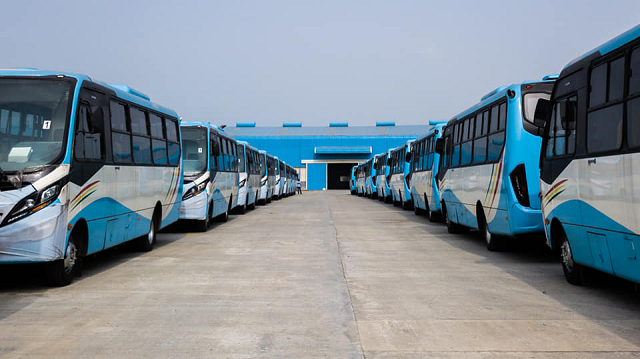With the signing of a Memorandum of Understanding to offer electric buses for citizens of the state, the Lagos Metropolitan Area Transport Authority (LAMATA) and Oando have reached a new milestone.
The Memorandum of Understanding, signed last Thursday in Lagos, establishes a partnership between Oando Clean Energy Limited, Oando’s renewable energy business, and Lagos State in their efforts to make the city more sustainable through the deployment of electric mass transit buses, charging infrastructure, and service centers (EV Infrastructure Ecosystem).
According to a statement from the firm, the relationship will be part of numerous initiatives, including the Lagos state blue and red rail, which will set the tone for the state’s eventual decarbonization of the road transportation sector.
Commenting on the MoU signing, the Managing Director, LAMATA, Abimbola Akinajo, was quoted as saying, “Oando Clean Energy came to us with a comprehensive solution that went beyond electric mass transit buses to include supporting infrastructure, and this was key for us, as the full remit of an EV support ecosystem is the only way to achieve success. This initiative will not only accelerate the Government’s transportation agenda, but also positively impact the health of Lagosians and the environment.
“The Oando brand comes with know-how and experience, and we are relying on this to successfully move from MoU signing to actual implementation that will in the medium to long term benefit over 22 million Lagos commuters. We look forward to a very robust and fruitful partnership.”
The program emphasizes the critical role of public-private partnerships in achieving the continent’s industrialization ambitions.
The Chairman, Oando Clean Energy, Adewale Tinubu, said, “Oando Clean Energy was born out of a need to curate the best energy mix to propel Nigeria and indeed Africa, to its full potential.
“As a company, Oando has always championed PPP as fundamental to Nigeria’s industrialisation. Through the signing of this MoU, we are revolutionizing the landscape of mobility by pioneering e-mobility in Lagos. Furthermore, we remain dedicated to achieving our national commitment to net-zero by 2060, ending energy deficiencies and further propelling the country to an industrialized phase through decentralised and sustainable energy systems.
“We are excited to be embarking on this journey with Lagos State and must commend their foresight and willingness to forge a template for others to follow. It’s easy to be perturbed by the perceived challenges that come with the mega-city status tag, but by taking this bold step, Lagos is showing the continent what is indeed possible and giving other cities the impetus to redefine today how to build a public transport system for the future.”
The Commissioner for Transport, Lagos State, Dr. Fred Oladeyinde said, “With an understanding that transportation is a key emitter of greenhouse gases in Nigeria, we developed a strategy to cut greenhouse gases by 50 per cent. A key component of this strategy was identifying and developing a more robust mass transit system for Lagos that would include rail and waterways amongst others. Using electricity to power mass transit is a step in the right direction, and from there we would gradually transition to private cars.
“This is just the beginning, there is still a lot more to come on stream. I commend LAMATA and Oando on this MoU signing, and both parties can be rest assured that they have my full backing to ensure success,” he said.











